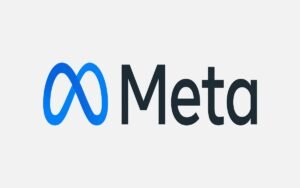Mark Zuckerberg, the CEO of Meta, the parent company of Facebook, Instagram, and WhatsApp, is projected to collect $700 million (£549 million) in annual dividends.
On Thursday, Meta announced that it will pay its first quarterly dividend to investors since Facebook went public in 2012, after exceeding Wall Street estimates with $40 billion in sales in the fourth quarter of last year.
Meta Platforms declared its first dividend and reported higher-than-expected revenue and profit, thanks to robust ad sales during the holiday shopping season. The unprecedented dividend for investors might result in an annual payout of over $700 million (5,800 crore) for CEO Mark Zuckerberg.
The business announced a doubling of quarterly profits to $14 billion as advertising revenues recovered, despite Meta slashing 22% of its workforce, bringing the total number to around 19,000, and launching a $50 billion share repurchase.
Zuckerberg also announced that the firm, which turns 20 this month, will pay its first dividend as a public corporation at 50 cents per share. Meta stated that the $1.25 billion payment to investors will be the first of many recurring installments. Zuckerberg owns over 350 million shares, which means that assuming Meta pays out dividends at the same rate each quarter, he will get almost $700 million over the first year of the program.
Decision welcomed by Investors
Investors have applauded the move to start paying dividends. Meta’s stock rose more than 17% in pre-market trading in the United States on Friday, although several experts have questioned why the business made the move.
“The move is surprising given it has flagged a need to invest heavily in AI-related infrastructure, and its metaverse project is gobbling up cash every quarter with no sign of it making a profit for years to come,” said Dan Coatsworth, an analyst at AJ Bell. “Paying a dividend suggests the company wants to reboot its reputation and be taken more seriously.”
However, Coatsworth emphasized that it is a “token gesture” considering that the dividend is $2 per share, resulting in a 0.4% return for an investor based on Meta’s $461 share price.
Coatsworth noted that while the company has stated that share buybacks would remain the major method for returning capital to shareholders, the beginning of dividend payments is a means to signal the internet industry has achieved mainstream maturity, like the oil, gas, banking, and pharmaceutical industries.
Why is Meta issuing dividends?
Meta’s choice to pay dividends sheds light on its future development prospects. Meta, unlike many rapidly developing technology businesses, prefers to pay dividends rather than invest in new products or acquisitions. While they spend substantially on artificial intelligence, regulatory constraints limit their capacity to make large acquisitions.
Meta’s shares nearly quadrupled in 2023 after the company laid off over 21,000 employees and reduced its focus.
The announcement of a new dividend and an additional $50 billion for share buybacks, along with the positive outcome, may inspire greater patience among investors, backing Mark Zuckerberg’s long-term investments in artificial intelligence and the metaverse.
Criticism Faced by Zuckerberg
Meta received criticism at a US Senate judiciary committee hearing on Wednesday, which was held to question Zuckerberg and other internet executives on the impact of their services on underage users. The CEO expressed his sympathy to the parents of children who perished as a result of internet exploitation.
Throughout the session, Congress members praised legislation that would deprive Meta and other platforms of legal protection for information uploaded on their networks. This comes months after the attorneys general of 41 states filed a huge lawsuit against Meta for its influence on teenage users.
The New Mexico Attorney General has also filed a lawsuit against the corporation for allegedly failing to prevent child sexual exploitation and trafficking.










